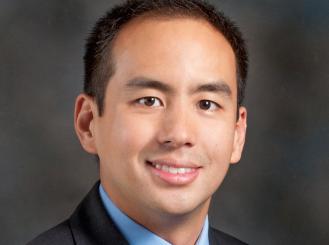Jul 25, 2014
By Richard T. Lee, MD, The University of Texas MD Anderson Cancer Center
Congratulations! You have finally finished your fellowship after years of school and training—likely over 10 years. As a trainee, you may have dreamed of finally becoming an attending, or being in private practice and being your own boss. Now you have signed a contract and are embarking on a new stage in your career. Transitioning from training to career and adjusting to life after fellowship is exciting, but also comes with new challenges.
PATIENT CARE
If you are anything like me, you counted down the days until graduation, and had a feeling that you were ready to be in charge. You may have felt that you really didn’t need your attending for most of your patients in the past few months.
The reality is that you still have a lot to learn in medicine. You’ll soon realize that there are many patients who just don’t fit what you learned, what you read in the treatment guidelines, or what you saw previously. This can be somewhat daunting when your name is now associated with the chemotherapy orders and CT scans. Before, the medical team would look to your attending, but now it is you they turn to make important decisions. No one is looking over your shoulder to double-check your work anymore—you’re in charge.
There likely were a lot of nuisances and obstacles that your attending took into account but never really discussed with you. As my colleague pointed out, this is where you really learn the art of medicine. Don’t be afraid to ask your past attendings or new colleagues for advice. Everyone will understand.
Your practice also will go through different stages: you’ll have initial growth with mostly new patients, and slowly reach an equilibrium of new and old patients. This transition in patient care will take time—at least a year. Most clinical practices won’t fully mature for a few years.
THE BUSINESS OF MEDICINE
As a fellow, you’re generally shielded from the administrative tasks related to billing, but now you’re responsible for billing and proper documentation. Under-bill and you’ve missed the opportunity to generate appropriate revenue, but over-bill and you put yourself at risk with the government. Understanding the intricacies of how you bill and how your practice generates revenue is important whether you’re in academic or private practice.
Productivity, productivity, productivity. Now that the word “fellow” is no longer on your white coat, you will be expected to meet productivity numbers, such as new patients seen or relative value units (RVUs). This is the currency that is often used to benchmark your activity. Talk about your productivity goals with your colleagues or business manager upfront so you aren’t surprised a year later when you are suddenly confronted with productivity numbers. Consider asking for a monthly or quarterly update to help gauge if you are on track.
Prioritize building professional relationships.Your attendings likely handled these aspects of the business, and you may have trained in an academic center or large medical center with clear referral structures. Now your job as a specialist depends on referrals from other physicians, who have a variety of choices for referring their patients. Referring physicians need to know who you are and where you trained, but more importantly, how you interact after they refer a patient to you. Communication is key, and lack of communication is one of the most common complaints of community physicians who refer to major academic centers.
And yes, the paycheck is fantastic compared to your fellowship pay. You’ve earned it. Enjoy it! Buy something you’ve always wanted or take a trip, but remember that it’s never too early to develop a financial strategy for long-term goals, such as family security, housing, and yes, retirement. Consider working with a financial advisor soon after you have settled into your new job, as you’ll find spending your salary is a lot easier than making it.
Compared to 10 to 20 years ago, reimbursement rates have changed significantly and the business of health care is undergoing dramatic changes with the Affordable Care Act. Be proactive and educate yourself about all aspects of your clinical practice and personal finances.
AUTONOMY AND MENTORSHIP
One of the most common topics I heard from colleagues about the transition from fellowship is being responsible for your time. In training, you were told what to do and how to manage your time. Upon graduation this structure disappeared. Whether you show up for grand rounds won’t be noticed, but your patient care will be. In academic medicine, where you are expected to be productive outside of the clinic, no one will be asking if you are conducting research or teaching until you are up for evaluation, which may be one, two, or even three years from now. Enjoy your freedom, but use your time wisely. Consider setting short-term and long-term goals for yourself to be sure you’re on track professionally.
As you develop in your career, you’ll always need a mentor to some degree. I know, I know—you thought you were done! But a mentor can be especially helpful as you navigate the transition from fellowship to your first job as an oncologist. If you’re involved in a lot of research, the road to independence will usually take several years to establish. Setting up a strong mentor relationship now will be pivotal for your career advancement and career success.
THE LONG HAUL
As opposed to school and training, where the goal was always three or four years away, your career will hopefully span several decades. This is a major shift that requires some adjustment. A difficult rotation may have lasted one to six months, but your new career will entail the same work for years. Pace yourself. You’ll need to establish a new equilibrium that balances your career, family, and personal needs. Allow yourself time to recharge at regular intervals.
Two different mentors told me that it takes at least six to 12 months for anyone to settle into a new position. In fact, one told me to never make any major decisions within one year of a new job. So don’t worry if you start working for three months and you still feel like you’re adjusting—this is normal. Keep in touch with your fellowship colleagues and talk with them about how they are adjusting to their new careers. Everyone will be in the same boat, guaranteed.
Best wishes to you in your new career.


